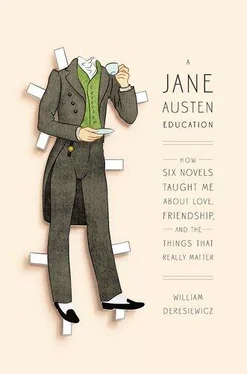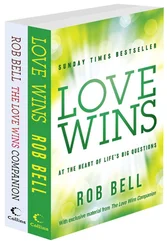but . . . I could not sit seriously down to write a serious Romance under any other motive than to save my Life, & if it were indispensable for me to keep it up & never relax into laughing at myself or other people, I am sure I should be hung before I had finished the first Chapter.—No—I must keep to my own style & go on in my own Way.
“I am fully sensible that an Historical Romance . . . might be much more to the purpose of Profit or Popularity, than such pictures of domestic Life in Country Villages as I deal in,” Austen replied (“romance” here meaning something like “saga”)—Her own way was to make art out of the very things that absorbed her attention in her own life. No one was closer to her than her older sister, Cassandra, with whom she shared a room until the end of her life. The two exchanged hundreds of letters during their periods of separation, filled with exactly the kind of gossipy detail that Austen shaped so gloriously into her novels:
Martha & I dined yesterday at Deane to meet the Powletts & Tom Chute. . . . Mrs. Powlett was at once expensively & nakedly dress’d;—we have had the satis faction of estimating her Lace and her Muslin [in other words, guessing how much they cost] ; & she said too little to afford us much other amusement.—Mrs. John Lyford is so much pleased with the state of widowhood as to be going to put in for being a widow again;—she is to marry a Mr. Fendall, . . . a man of very good fortune, but considerably older than herself.
You will not expect to hear that I was asked to dance—but I was—by the Gentleman whom we met that Sunday with Capt. D’auvergne. We have always kept up a Bowing acquaintance since, & being pleased with his black eyes, I spoke to him at the Ball, which brought on me this civility; but I do not know his name,—& he seems so little at home in the English Language that I beleive his black eyes may be the best of him.
The Tables are come, & give general contentment. . . . They are both covered with green baize & send their best Love.—The Pembroke has got its destination by the sideboard. . . .—The little Table which used to stand there, has most conveniently taken itself off into the best bed-room. . . .—So much for that subject; I now come to another, of a very different nature, as other subjects are very apt to be. . . .
And so on and so forth, for pages at a time of wit, silliness, high spirits, family news, gowns, weather, dances, and colds. Jane Austen’s life may have seemed uneventful compared to her aunt’s or cousin’s or brothers’, or indeed, compared to just about anyone’s. Her genius began with the recognition that such lives as hers were very eventful indeed—that every life is eventful, if only you know how to look at it. She did not think that her existence was quiet or trivial or boring; she thought it was delightful and enthralling, and she wanted us to see that our own are, too. She understood that what fills our days should fill our hearts, and what fills our hearts should fill our novels.
If I was so slow to catch on to all this, there was, of course, a very good reason. I’m a guy, after all. We aren’t exactly taught to pay attention to “minute particulars.” Gossip, we’re told, is for women. The very word is feminine, derogatory, trivializing. Like Emma and Mrs. Weston, or Jane Austen and Cassandra, it is women who are supposed to spend half hours, and more than half hours, gabbing with their girlfriends about every little thing. We are expected to preserve a manly silence, or speak only of impersonal matters—in other words, girls, gear, and sports or, if we take ourselves very seriously, politics and public affairs.
Things were not any different in Austen’s day, as the way she used that very phrase “minute particulars” made a point of underscoring. Mr. Knightley, a family friend, was telling the heroine some very interesting news about Harriet Smith. But when Emma pressed him for the juicy details, Knightley threw up his hands in masculine exasperation. “Your friend Harriet will make a much longer history when you see her,” he said. “She will give you all the minute particulars, which only woman’s language can make interesting.—In our communications we deal only in the great.”
The last word was a joke—Knightley was not that self-important—but other than that, he meant what he said. Women make “long histories,” long stories, but men do not. Austen meant it, too, but she also meant, I realized as I read the scene, a lot more than Knightley could know. I was only about a dozen pages from the end of the novel, and she was using him, I saw, to expound her artistic theory and declare her artistic triumph. “Women’s language”—the idiom of everyday conversation—was exactly the language in which Emma was written, and making those minute particulars interesting was precisely what Austen had done. She had given us a long history of private matters, of what Emma had called, many pages back, “woman’s friendship and woman’s feelings.” She had gossiped with us for four hundred pages, made us her girlfriends, told us of “little affairs, arrangements, perplexities, and pleasures,” and we had listened and understood, because she had been always interesting and always intelligible.
She had shown us, in other words, what it means to see and think and talk like a woman. The very idea that those things might be worth my while would have been ridiculous to me before I encountered her. Just the previous semester, in fact, I had loudly and proudly expressed the general male attitude toward “chick lit.” It was in a seminar in popular fiction run by a famously macho professor—an aging Clark Gable lookalike, six foot three with a cigarette rasp, who told stories about hanging out in the Village back in the jazz days and getting punched in the stomach by Norman Mailer. After weeks of boyish fun— Frankenstein and Dracula, Sherlock Holmes and Edgar Allan Poe, I, the Jury and The Maltese Falcon —we got to Daphne du Maurier’s Rebecca (the book that inspired the Hitchcock movie), a chick-lit novel if there ever was one. As soon as the session started, the professor sensed the torpor in the room.
“What’s the matter?” he asked the class of mostly guys. “Didn’t you like it?”
“I don’t know,” I said, always the first to volunteer my opinion. “I can’t really relate to it. It’s kind of—girlie.”
The guys responded with a murmur of assent, while one of the female students noted that although women learn to crossidentify with male heroes—out of necessity, if nothing else, since that’s what literature mainly gives you—men are only ever asked to identify with other men.
But there I was, just a few months later, soaking up the girliest novelist of all, the godmother of chick lit. Austen had shown me what it meant to act like a woman, and she’d also made me recognize why it was worthwhile. She had taught me to listen to people like Mr. Woodhouse or Miss Bates, not just because they deserved the same respect as everybody else, and not just because their feelings were as real and as deep, but because I might actually have important things to learn from them. Indeed, once I started paying attention to those two, it slowly dawned on me that however silly they might be, they each possessed a vital piece of wisdom—each embodied, in fact, one of the very lessons the novel itself was trying to teach.
Mr. Woodhouse may have been overbearing, with his obsessions about health and food—“Mrs. Bates, let me propose your venturing on one of these eggs. An egg boiled very soft is not unwholesome. Serle understands boiling an egg better than any body”—but they grew from a genuinely tender concern for the well-being of those around him. Here he was, “the kind-hearted, polite old man,” talking to Jane Fairfax, Miss Bates’s niece, “with all his mildest urbanity”:
Читать дальше












